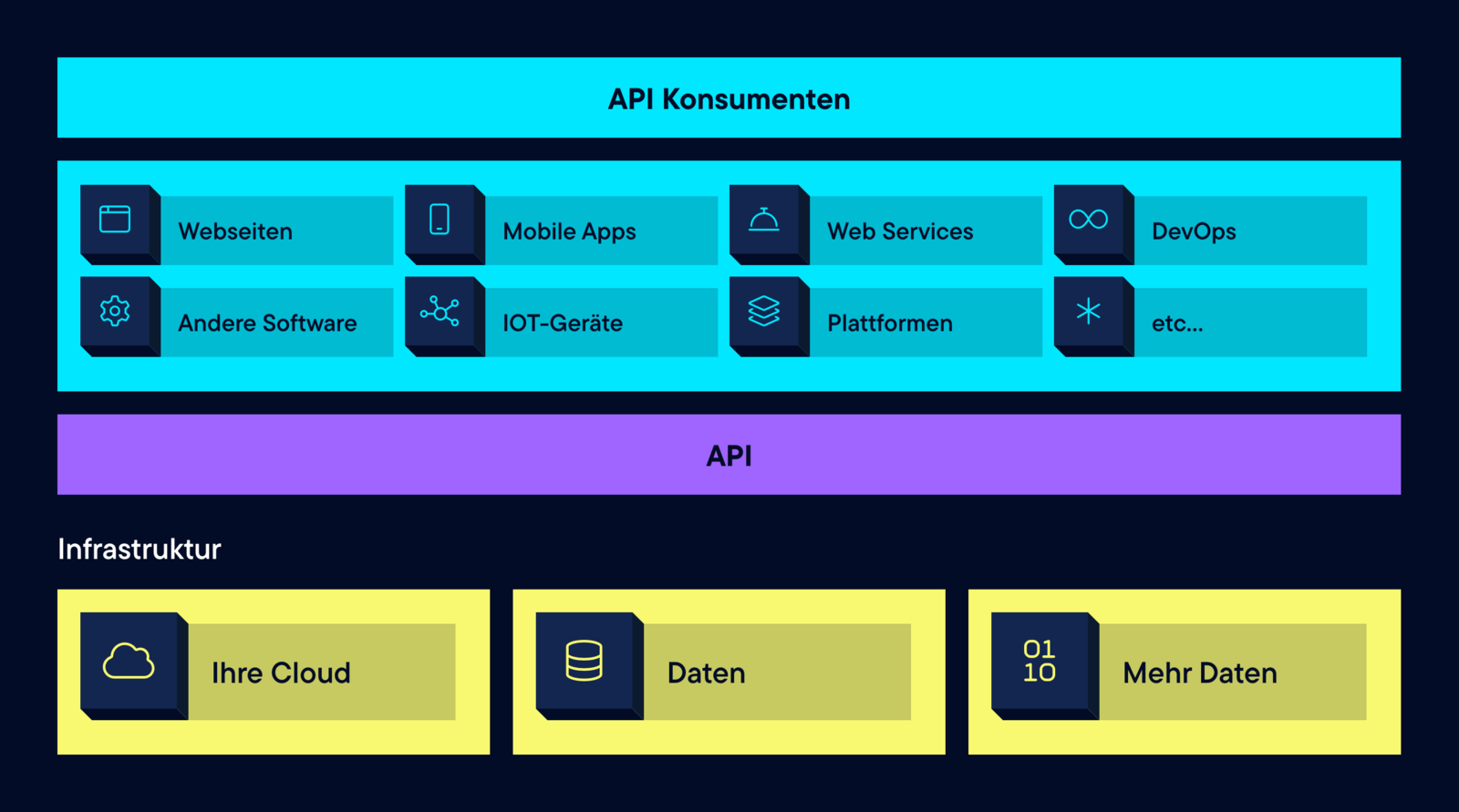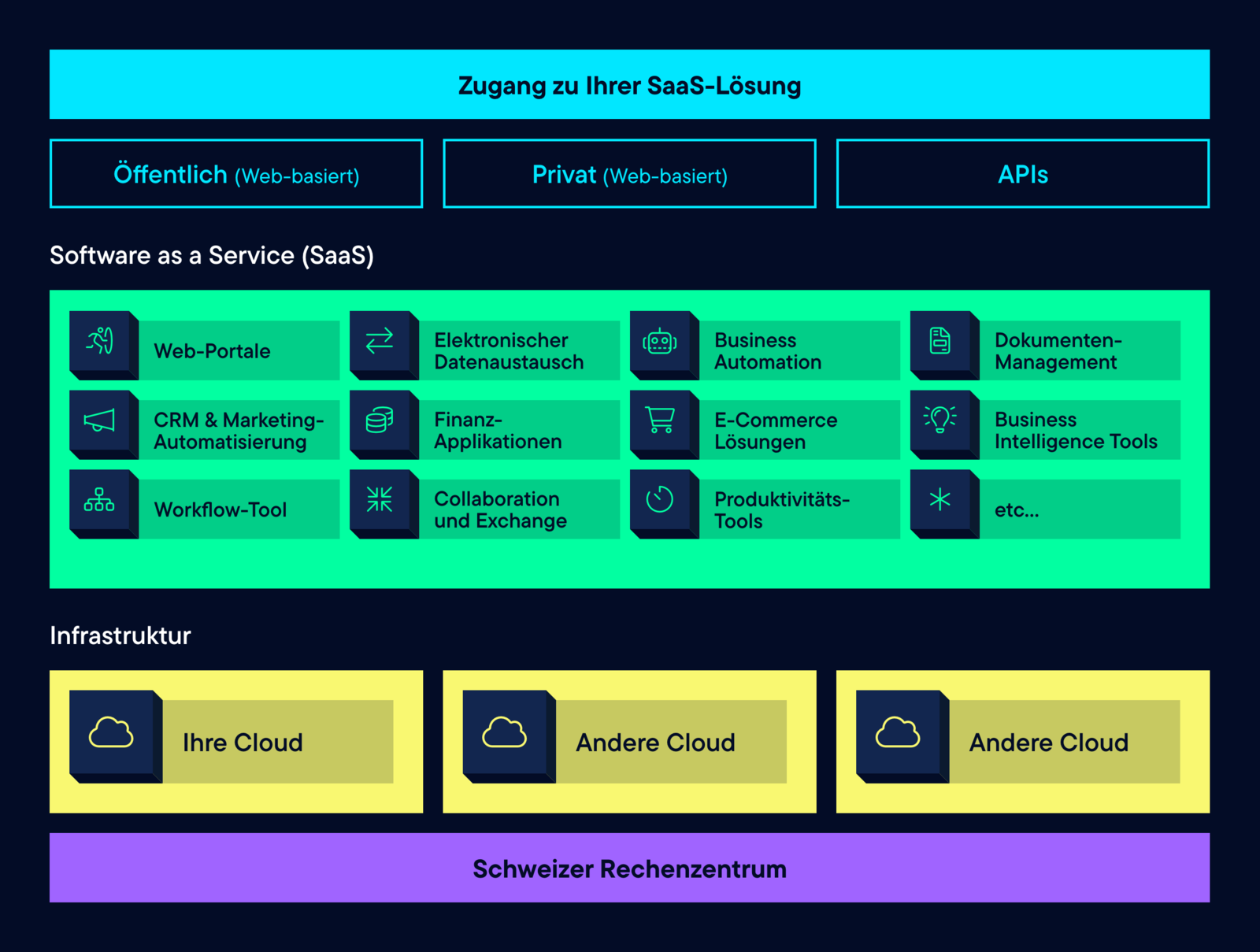Modern IT infrastructure is multi-layered and complex. Most companies operate a multitude of different platforms, systems and services. These structures have often grown over the years. Especially with regard to the information flow between different systems, this leads to problems again and again. API programming is the solution for precisely these situations, in which two platforms cannot exchange data with each other.
What is an API anyway?
API is the abbreviation for Application Programming Interface. The term refers to a part of a program that allows two systems to communicate with each other. The API contains commands, functions, protocols and objects that determine how to interact with other systems. Thus, the task of an API is to enable and clearly define the connection between two different systems.
If an API is present, then it allows a kind of plug-and-play in the connection between two separate systems. For example, this could be a database and a customer relationship management platform.
In other words, an API is responsible for communicating and transferring data. Standardized APIs simplify data transfer between two platforms. There are standards such as REST or SOAP, each of which has very specific areas of responsibility. API standards make it easier for programmers to adapt when it comes to linking two systems together.
How does API programming solve problems in IT infrastructures?
An API is a simple but effective solution to many situations. Imagine you have information in a database and you want to process it in another software. This is one of the most common scenarios where APIs are used.

If data is to be transferred once, it is possible to export it manually. Subsequently, the conversion into a format that the target software understands takes place. Finally, the data must be imported into the platform in which you need the information.
So even a one-time data transfer generates a lot of work if there is no direct interface. If you now want to permanently transfer data between two systems, this becomes an enormously labor-intensive task.
This is exactly where APIs come in. The interfaces take over the transformation of the data and connect two systems that are actually incompatible with each other. At the same time, an API handles the automatic transfer of data. If a platform provides data at this interface, the API takes over the communication between the systems.
If a platform has an API, it is also easier to extend it independently of the manufacturer. Your own modules can be integrated via an API. This allows you to extend the functionality of a platform with exactly the features you need.
These are the central advantages of APIs:
- Direct communication between two systems
- Automation of data transfers
- Development of additional modules for software systems
Examples of the sensible use of APIs in practice
In practice, you can find many examples where an API makes everyday work much easier. Often you use APIs without knowing it. This is the case, for example, with larger webshop providers. As a visitor and user of a webshop, the API connection of the payment service provider (PSP) is most visible. This API offers the possibility to provide an instant payment method via credit cards or other payment methods.
Not directly noticeable by the end user, however, are APIs that run in the background at the web store operator and provider. For example, they enable the connection of specialized software for merchandise management. Other options include linking the API of the shipping partner or connecting to the company's own ERP system to automate billing and posting.
Another frequent use of APIs is also found in customer portals. Here, the CRM system is often connected in order to synchronize and process existing customer information or to feed new information back into the system. This approach ensures that all current data is accessible in the CRM system and duplicate storage is avoided.
Why is API programming becoming increasingly important?
There are good reasons why APIs will play a central role in IT in the future. They are already an important component today. However, this trend will intensify even further.

One reason for this is advancing digitization. It and Low Code accelerate application development. Many companies are developing their own small apps. These individual applications do not operate in isolation, but are integrated into the IT infrastructure. APIs are used for this purpose.
This leads over to the next reason: networking. One strength of modern digital systems is the interconnectedness between the platforms used. This allows the free transfer of data. In addition, this also ensures future-proofing. Because you provide possibilities for the expansion of platforms.
Automation is just as important. Effective digital processes must be automated. APIs enable precisely this. With little effort, you can then design automatic processes that run across platforms.
cloudtec takes over the API programming for you
The Middleware Engineering is one of our core services. This includes all tasks that are necessary to make information available. Accordingly, API development is a subarea of middleware engineering.
The API programming helps you to orchestrate the various systems of the modern IT infrastructure. This creates a unified, fully networked system landscape. This is especially helpful if you want to create connections between your local platforms and applications in the cloud.
cloudtec offers you these services in the area of API programming
Within the framework of API programming, we offer you versatile and individual services. They are always based on an analysis of the existing platforms. Then we orient ourselves on the results and find the suitable, practical solution for you.
Our services include API programming for the ERP connection. ERP systems in particular are often used in companies over a long period of time and are constantly expanded and improved. This is another reason why many shy away from a change, because these systems are deeply anchored in the company's own IT infrastructure.
With API programming, we create opportunities to connect your ERP platform with new applications. This includes cloud services or other software solutions. New ERP systems already offer API interfaces. This simplifies the integration of external systems. Here, too, we support you in the concrete integration of software via these interfaces.
Likewise, we take over the development of individual API interfaces. We cover the entire spectrum and create application-, communication- as well as message-oriented interfaces for you. In this way, we eliminate the most diverse hurdles that occur when two incompatible systems meet.
With the use of APIs, you make data available without limits in all digital systems in your company. Through automation, you lower costs and reduce the manual effort in everyday life.
Do you need expert assistance with API programming? Then use our contact form and tell us about your situation. Together we will find a practical solution and create suitable interfaces for your IT infrastructure.